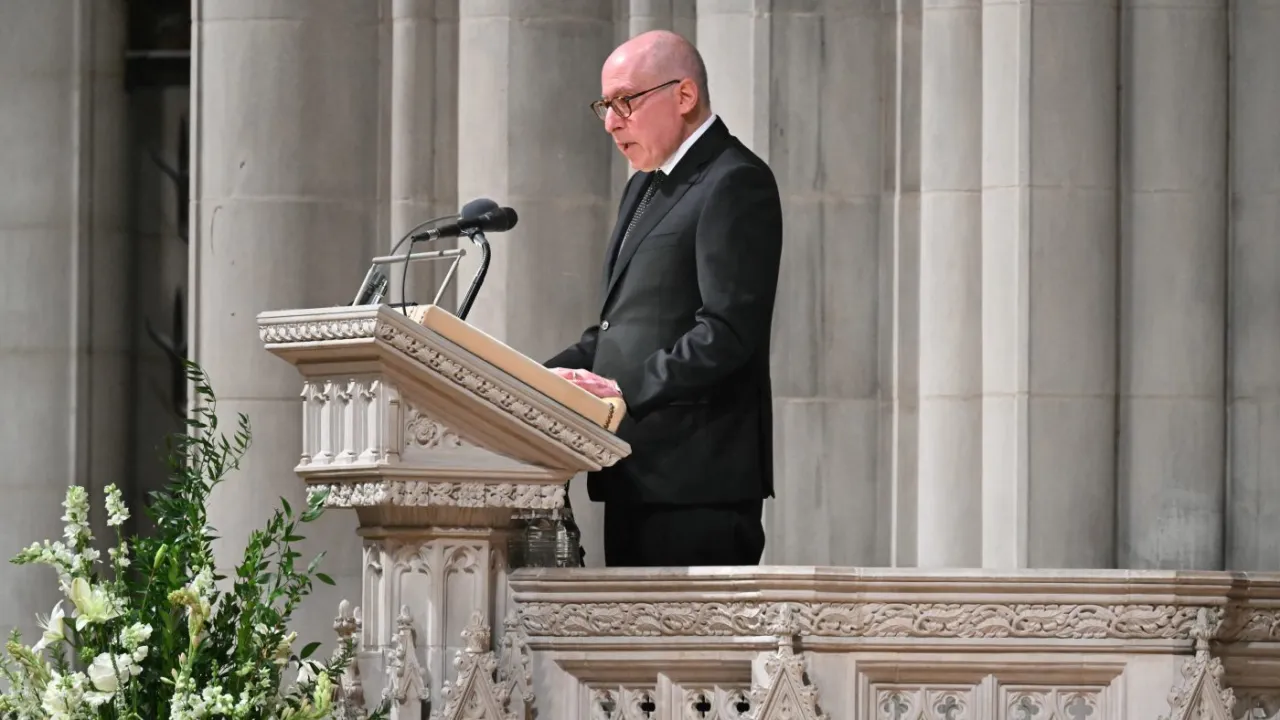Mere days after news of Texas trailblazer Eddie Bernice Johnson’s passing rocked both the Lone Star State and the greater nation, there would come another unexpected bombshell; an allegation that the very medical facility entrusted to guide the late Congresswoman through rehabilitation may have played a role in her death. Johnson, who was (unhumorously ironically) the first registered nurse and first Black Dallasite elected to Congress, died on New Year’s Eve, at age 89. As the country set to memorialize the figurehead to the soundtrack of heartfelt statements and sweet sentiments from the likes of President Biden, Vice President Harris and Johnson’s hand-picked successor, Representative Crockett, another quiet storm was brewing. One that would, within just days of the Congresswoman’s passing, inform some and remind others that healthcare in the U.S. is, well, different for Black women.
With the initial announcement of the Congresswoman’s passing, the cause of death hadn’t been shared with the public. But, to be fair, the public had probably given little thought to the cause of death because of the late Congresswoman’s advanced age and, from the outside looking in, there was no visible reason to suspect any foul play. But, days later, her son, Kirk Johnson would go public with allegations that a rehab center within the Baylor Scott & White Health System may have played a role in his mother’s death.
The family, in several public statements, recounted the Congresswoman’s recent medical history, explaining that she’d gone to an orthopedic surgeon on September 7, where she underwent back surgery on the lower spine to repair damage from and as a proactive measure against several degenerative diseases including scoliosis. According to the Johnson family, Dr. Andrew Park performed a successful back surgery to stabilize the Congresswoman’s lower spine so that she could continue to walk. Les Weisbrod, an attorney for the family, said that Johnson had already begun walking just days after the operation and was doing well enough that she was expected to make a full recovery after a few weeks. After the operation, and as in standard operating practice, Dr. Park ensured the Congresswoman began rehab to regain strength and mobility before going home. Park referred Johnson to the Baylor Scott & White rehab center.
Johnson’s son Kirk recalls, just two weeks after the operation, on September 21, while en route to what should have been a run-of-the-mill meeting about his mother’s treatment and progress, receiving a call from his mother who seemed, at least audibly, to be experiencing severe pain. According to Kirk Johnson, the Congresswoman stated that she’d called for help several times within a span of 15 minutes, to which there was no response. Kirk reported arriving 10 minutes after receiving his mother’s call, only to find his mother alone, soiled in her own feces and urine. Understandably disturbed, Kirk reported that he went to find help, but found an empty nursing station. After quickly escalating to the facility’s CEO, the Congresswoman was cleaned up by the nursing staff.
Three days later, Dr. Park, would notice complications including increased pain, a standing fever, and purulent drainage that signaled infection of the lower-back wound. Lab results would soon confirm that Congresswoman Johnson’s wound infection was caused by bacteria related to exposure to feces. In an attempt to remedy the complications caused by said exposure, on September 25, doctors operated, cutting the infected area away and replacing the devices Dr. Park had initially installed to stabilize Johnson’s lower spine. The Congresswoman was eventually moved from Baylor Scott & White’s rehab center to a skilled nursing facility, but would continue to decline. Johnson was eventually taken home for hospice care, where she would eventually pass away from osteomyelitis, or an infection of the bone.
The Johnson family would go on to announce their intent to sue Baylor Scott & White Institute for Rehabilitation in Dallas for “medical negligence” resulting in a wrongful death. Congresswoman Johnson’s experience, when revealed to the public, caused an uproar seemingly heard from Dallas to D.C. But, sadly, the Congresswoman’s ordeal wasn’t an isolated event. If anything, the Congresswoman’s experience forced the country to once again recenter some of the nation’s fractured attention on larger, long-standing and systemic issues that Black women have faced in healthcare for far too long.
This history of inequality in healthcare can be traced back to slavery, as Black women were further separated from their humanity and merely regarded as means for economic gain – forced to reproduce continuously with little to no access to care. For centuries now, from being subjected to savage experimentation with the development of gynecology as a study of medicine to the unethical harvesting of Henrietta Lacks’s cells, Black women’s bodies have been the cornerstone of some of medicine’s most important advances, only for Black women themselves to be left out of the life-saving treatments that are the derivatives of their bodily sacrifices. Imagine a Black woman’s cells being, at one point, the center of medical innovation – cells that still hold strong onto the title of being one of the most important cell lines in modern medical research – only for Black women to face bias and unequal treatment in the very healthcare industry they made possible.
But, why, right? The easy and simplified answer is what some would expect and others would hate to admit. The answer is racism. Good old, plain, United States racism that has meant the antagonism against a group of people based on their membership in a particular racial group. This same racism has a pesky habit of permeating other sociocultural constructs including gender and economics, so that the impacts of racial discrimination has the breadth and depth to touch anyone, of any income, employment, education, and housing level within a given racial group if it so pleases.
Here’s the thing: because primitive racism is at the center of the documented inequality and disparities Black women face in healthcare, financial, educational and geographical success tend to only go so far to help insulate even Black women of means. Consider Serena Williams, the 423 career match playing, 23 Grand Slam winning, $95 million cash prize making, tennis GOAT, whose body is literally her business. Williams recalled being dismissed when she told medical professionals that her body – the same body that she’d known and cared for, the body that had literally been her business – didn’t feel right after giving birth to her first child. Serena would undergo a number of life-saving surgeries to remove a series of blood clots, but only after an immense amount of personal advocacy on behalf of Williams herself.
Countless Black women celebrities have also spoken out about Black women’s health inequities amidst their own life-threatening experiences, including Queen Bey(once) and six-time Olympic gold medalist Allyson Felix. But so have normal, everyday people. In fact, earlier this month, in response to a white ER doctor and internet influencer Dr. J. Mack heading over to TikTok to single out Black patients for being on their phones while in the doctor’s office, several healthcare professionals raised their voices.
These creators came in droves to both scold and school Dr. Mack on the long history of medical trauma inflicted on Black patients. One content creator explained that for many Black patients, especially Black women, the individual at the other end of the phone may be there for emotional support, advocacy, to serve as a translator or witness, or all of the above. Dr. J. Mack’s covert attempt to go viral by making a mockery of a group of people he probably felt was an easy target actually backfired, showcasing a medical professional’s willingness to generalize an entire demographic of patents online, for everyone to see without a sliver of historical context, the slightest awareness of his own implicit bias, or a drop of remorse when called out for it. Without knowing it, Dr. J. Mack showcased that even in 2024, there are built-in cultural biases that have the potential over into every part of life, including healthcare. Money, education, where you live or who you know has proven to have limited value when faced with the very real reality of inequality Black citizens face in a range of life’s corners, from corporate to the cops.
There’s a saying that tends to poke its head from time to time: “doctors are to Black women what the police are to Black men”. In the Congresswoman’s case, there was no burden of economic, education, employment or housing insecurities. Nor did she lack advocacy or the capacity to advocate for herself. In Johnson’s case, all the social structures that should have protected anyone from the disparities visited upon the most vulnerable members of our population were in place. Johnson had been a successful woman, an alumnus of Saint Mary College and Southern Methodist University, a former elected official of the United States Congress and had been admitted to a facility owned by one of the nation’s most respected medical conglomerates. She had advocates and was well enough, post-op, to advocate for herself. She was just, well, ignored. Looked over. Her success, in this case, didn’t matter and had no way of insulating her from what Black women of all social levels in the U.S. know to be true – for them, a doctor could mean death.




